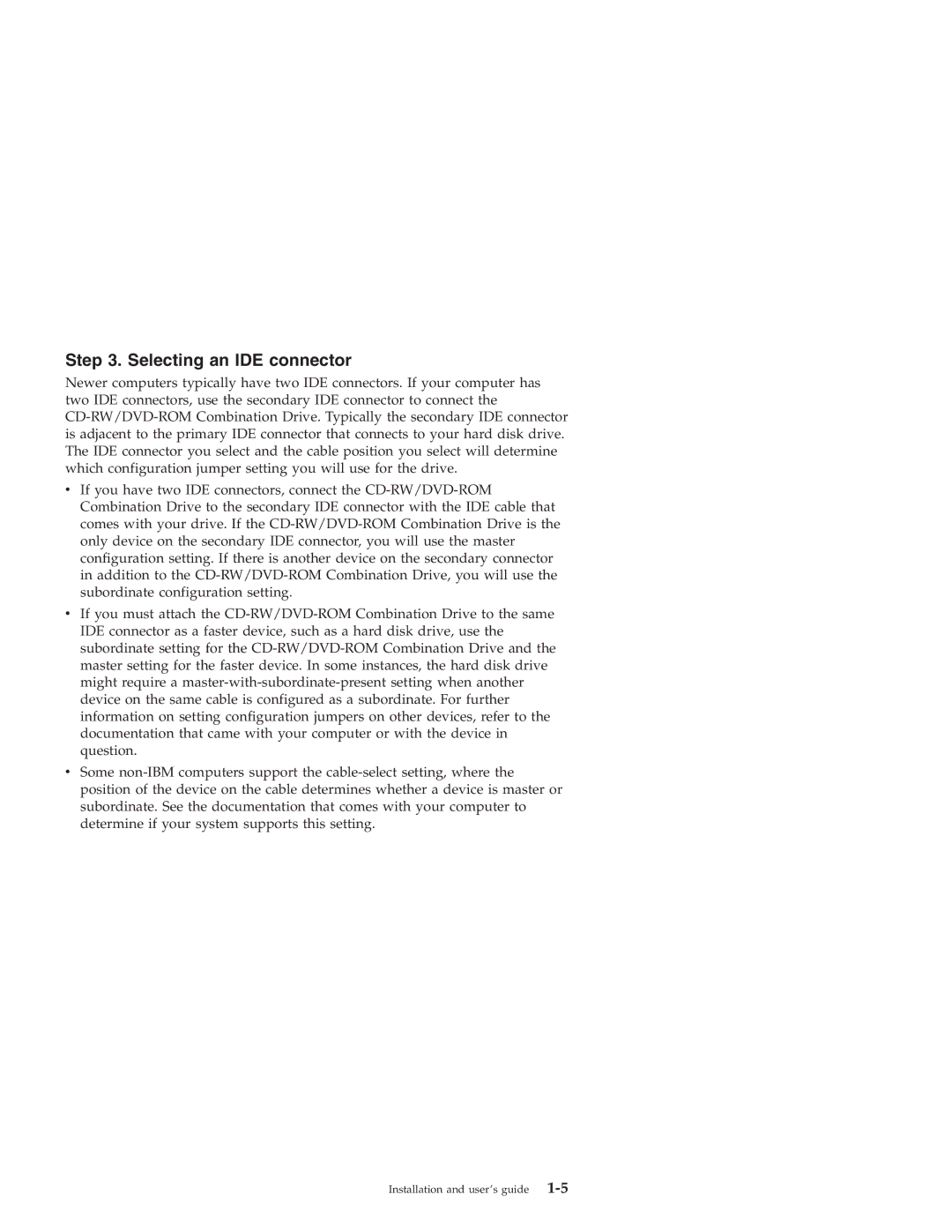Step 3. Selecting an IDE connector
Newer computers typically have two IDE connectors. If your computer has two IDE connectors, use the secondary IDE connector to connect the CD-RW/DVD-ROM Combination Drive. Typically the secondary IDE connector is adjacent to the primary IDE connector that connects to your hard disk drive. The IDE connector you select and the cable position you select will determine which configuration jumper setting you will use for the drive.
vIf you have two IDE connectors, connect the CD-RW/DVD-ROM Combination Drive to the secondary IDE connector with the IDE cable that comes with your drive. If the CD-RW/DVD-ROM Combination Drive is the only device on the secondary IDE connector, you will use the master configuration setting. If there is another device on the secondary connector in addition to the CD-RW/DVD-ROM Combination Drive, you will use the subordinate configuration setting.
vIf you must attach the CD-RW/DVD-ROM Combination Drive to the same IDE connector as a faster device, such as a hard disk drive, use the subordinate setting for the CD-RW/DVD-ROM Combination Drive and the master setting for the faster device. In some instances, the hard disk drive might require a master-with-subordinate-present setting when another device on the same cable is configured as a subordinate. For further information on setting configuration jumpers on other devices, refer to the documentation that came with your computer or with the device in question.
vSome non-IBM computers support the cable-select setting, where the position of the device on the cable determines whether a device is master or subordinate. See the documentation that comes with your computer to determine if your system supports this setting.
Installation and user’s guide | 1-5 |
